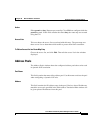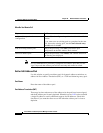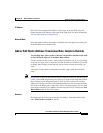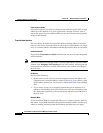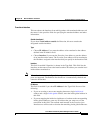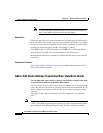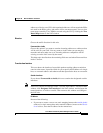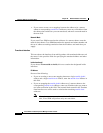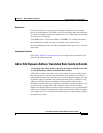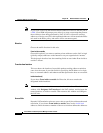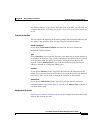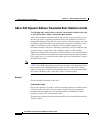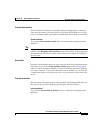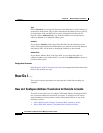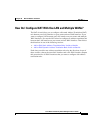
26-23
Cisco Router and Security Device Manager 2.5 User’s Guide
OL-4015-12
Chapter 26 Network Address Translation
Network Address Translation Rules
Redirect Port
Check this check box if you want to include port information for the outside
device in the translation. This enables you to use extended static translation and
to use the same public IP address for multiple devices, as long as the port specified
for each device is different.
Click TCP if this is a TCP port number; click UDP if it is a UDP port number.
In the Original Port field, enter the port number on the outside device.
In the Translated Port field, enter the port number that the router is to use for this
translation.
Configuration Scenarios
Click Static Address Translation Scenarios for examples that illustrate how the
fields in this window are used.
Add or Edit Dynamic Address Translation Rule: Inside to Outside
Use this help topic when you have chosen From Inside to Outside in the Add
or the Edit Dynamic Address Translation Rule window.
Add or edit an address translation rule in this window. If you are editing a rule,
the rule type (static or dynamic) and the direction are disabled. If you need to
change these settings, delete the rule, and re-create it using the settings you want.
A dynamic address translation rule dynamically maps hosts to addresses, using
addresses included in a pool of addresses that are globally unique in the
destination network. The pool is defined by specifying a range of addresses and
giving the range a unique name. The configured router uses the available
addresses in the pool (those not used for static translations or for its own WAN IP
address) for connections to the Internet or other outside network. When an address
is no longer in use, it is returned to the address pool to be dynamically assigned
to another device later.



